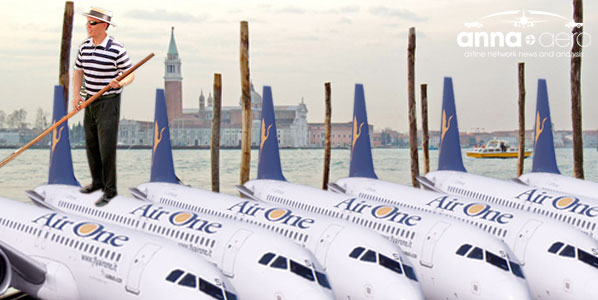With consumers getting their spring and summer travel plans ready, low-fare airlines are in the news again. How low can their fares really go? Given the high price of jet fuel, "low" is meant to contrast with the higher fares, more extensive schedules and higher service levels of established airlines.
Iberia Express, a startup (left) owned by the company that also owns British Airways, will initially fly from Madrid to cities within Spain, with one-way fares as low as £21.
Because budget airline Ryanair is currently the market leader (by number of passengers carried) among airlines operating in Spain, Iberia Express offers an opportunity to compete in a price-conscious environment.
Alitalia's Air One budget subsidiary (right), just entering its third year of operation, is ready to fly to and from Marco Polo Airport in Venice, an expansion timed for the peak summer travel season. It already serves Milan and Pisa, but the Venice expansion allows Air One to serve new international routes with low fares.
If jet fuel prices stay high and competition forces ever-lower fares, will these budget airlines be able to compete over the long run?
skip to main |
skip to sidebar

Companion blog to the textbook by Marian Burk Wood includes links to resources for marketing planning
Updated list of links
About the Author

- Marian B. Wood
- After holding executive positions in corporate and non-profit marketing with Citibank, JPMorgan Chase, and the National Retail Federation, I became a textbook author at the dawn of the Internet age. Pearson Education publishes my college textbook, 'Essential Guide to Marketing Planning.'
Search This Blog
Blog Archive
Privacy Policy
This site uses Google's Blogger technology. Be aware that Google serves cookies to analyse traffic to this blog. If you contact me via my blog, I'll use your email only to respond to your inquiry. Any comments you submit that are posted will be publicly visible. If you click on any links from this blog to outside sites, please review their privacy policies and content. By using this site, you agree to these terms of use.


